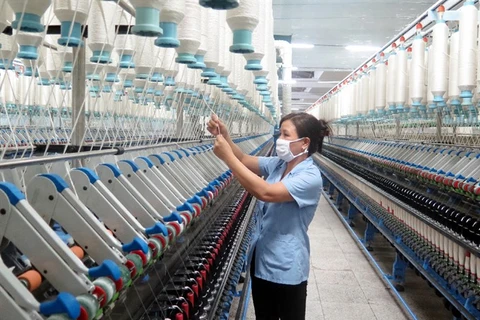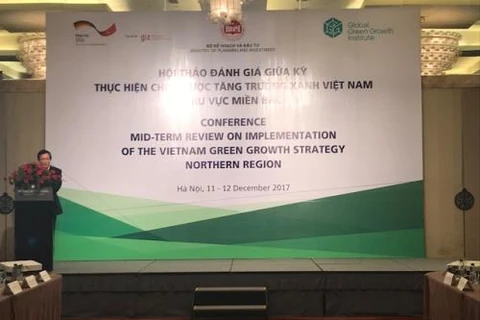Hanoi (VNA) - The public investment restructuring scheme in 2017-20 will focus on core sectors of the economy and major projects that give impetus to socio-economic development and promote public and foreign investments under public-private partnership (PPP) practice.
This is stressed in a project to restructure public investment approved by the Prime Minister.
The project is aimed at forming a rational public-investment structure, improve the efficiency of public investment and public-investment management, while effectively raising and using other sources of investments in developing the socio-economic infrastructure system.
Accordingly, the project targets a disbursement rate of public investment of more than 90 percent annually. The sum would be equivalent to 10-11 percent of the country’s gross domestic product (GDP).
Public investment from the State budget and Government’s bonds would prioritise projects in mountainous remote regions and regions, which are often hit by natural disasters.
State-funded investment must be used as bait to raise capital from other economic sectors and create breakthroughs in raising private investment under PPP practice.
The project said that capital from private investment under PPP practice would be focused on important social-economic infrastructure projects, especially in health and education sectors.
Capital from official development assistance and preferential loans provided by foreign donors would prioritise rural and agricultural projects, projects that aim to improve modern market-economy institutions in line with international practice.
Investments by State-owned enterprises would prioritise sectors in which the State must hold stakes and the investment must contribute to stabilising the macro-economy and creating favourable conditions for other economic sectors.
In the northern midlands and mountainous region, public investment would focus on developing road system, such as highways from Hanoi to Lao Cai, Hoa Lac to Hoa Binh, Thai Nguyen to Bac Kan and Bac Giang to Lang Son - and irrigation works.
In the Red River Delta, infrastructure projects which improve connectivity between regions, such as the North-South expressway, ports, seaports, urban railways and education projects would be given priority.
Public investment in the central region would give priority to projects which help enhance the connectivity of the East-West economic corridor as well as projects that help develop Da Nang City into a socio-economic hub and promote the marine economy.
In the Central Highlands region, irrigation works would be prioritised, while in the Mekong Delta, priority would be given to irrigation works, developing transport system and climate-change adaptation.
Public investment in the Southeast region would focus on developing infrastructure for the formation of the country’s leading science and technology centres.
To achieve these goals, the project said that the regulations on public investment, especially the Law on Public Investment, must be reviewed and amended to remove existing problems.
Besides, the restructuring of public investment must be associated with the restructuring of the State budget and public debt.
It was also important to provide opportunities for the private investment in developing infrastructure and providing public services as well as completing the mechanism for PPP towards transparency, convenience and efficiency, according to the project.
Enhancing the management of public investment was of significant importance, the project said, adding that the application of information and technology in managing public investment must be promoted. - VNA
VNA























